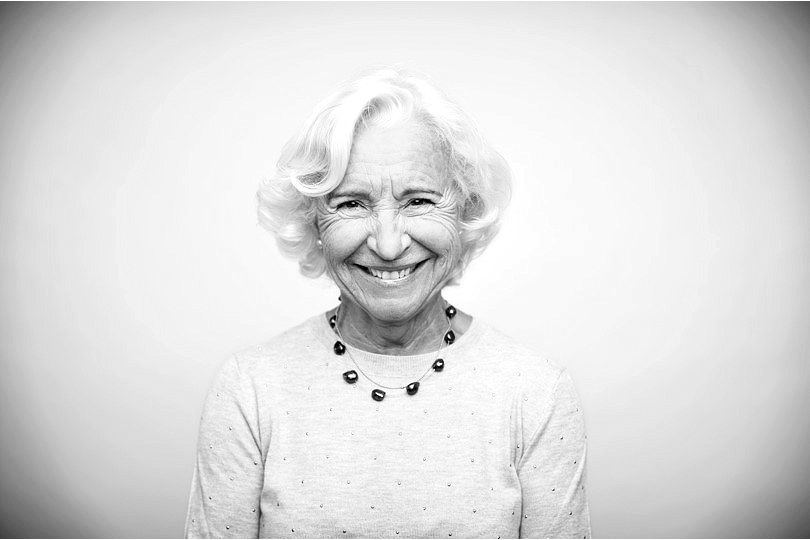Role of Human Rights Advocates

Human Rights Advocates (HRAs) have a unique role in their communities. They help guide policies and systems to ensure that all people – without exception – are guaranteed their basic human rights, can meet their basic human needs, and that no one is marginalized or left out in the process. Anyone can advocate for human rights. However, when a person accepts the role of a Human Rights Advocate, they’re making a commitment to upholding basic human rights, acknowledging basic human needs, and preventing marginalization in every situation they encounter to the best of their abilities.
Qualifications
Regardless of one’s profession – teacher, truck driver, doctor, grocery store clerk, dishwasher, lawyer, police officer, social worker, etc. – human rights advocacy is for everyone. The primary qualification for being a human rights advocate is the ability to make a commitment to ensuring all people – without exception – are guaranteed their basic human rights, have access to their basic human needs, and are free from marginalization, exclusion and oppressive policies and systems.
Responsibilities
On a day-to-day basis, human rights advocates take on eight (8) key – or primary – responsibilities.
Listen – HRAs listen to and seek to understand the voices of people who are telling the community a policy or system is not working for them.
Uplifting Voices – They assist in uplifting the voices and underlying concerns of stakeholders and those who are directly impacted by policies and systems.
Analysis – HRAs analyze policies and systems to ensure they uphold basic human rights, guarantee access to basic human needs, and prevent marginalization and exclusion.
Research – On a regular basis, human rights advocates find and provide referrals to existing services for people experiencing human rights violations, barriers to accessing basic needs, or discrimination.
Policy Development and Advocacy – They develop and advocate for the adoption of human centered, empowerment-based policies and systems.
Escalation – When necessary, HRAs engage in escalation techniques such as protests, calls-to-action, boycotts and demonstrations designed to secure human rights, access to basic needs and accessibility and inclusion for all people.
Support Policies – They support policies and systems that advance human rights, access to basic needs and accessibility and inclusion for all people.
Oppose Policies – Human rights advocates also bring to awareness and oppose policies and systems that infringe upon human rights, restrict access to basic needs, and/or marginalize and exclude groups and individuals.
Skills
Evaluating and enhancing one’s own skill sets allows human rights advocates to successfully fulfill their responsibilities. Here, we’ll review some of the most important skills needed for our work. If you see an area where you might be lacking a bit – that’s okay. However, you may want to focus on enhancing that skill set throughout your human rights advocacy journey.
Policy Analysis – Human rights advocates analyze policies and systems to determine if they violate human rights, restrict access to basic human needs, or prevent accessibility and inclusion through marginalization and exclusion.
Listening and Comprehension – Understanding the underlying message of those who express frustration or anger about a policy or system is an important part of the work. HRAs always want to be sure to listen with intent to have a clear understanding of the person’s needs or wants regardless of how they are expressing themselves.
Empathy – Empathy skills allow people to view another person’s position, feelings or concerns from their perspective. We might not come to the same conclusion as them. However, understanding where they are coming from allows HRAs to meet them where they are.
Articulation Skills – HRAs are often called upon to speak on someone’s behalf in order to educate others about a person or group’s feelings or experiences. They might also be called to explain policy issues in a way that many people can understand. Synthesizing and articulating information in a way that builds rapport, relationship and connection to the issue with the desired audience is an important part of what HRAs do.
Basic Research – Human Rights Advocates are not expected to know everything. But when someone is impacted by a human rights violation, they often need to know the laws and policies involved, as well as available resources that can help someone. The ability to do basic internet research by using key terms and geographic location greatly assists HRAs in their role.
Communication Skills – HRAs are often called to support or oppose a policy or law. Being able to write, speak or express in other ways (such as through art or music) support or opposition to a policy or law is a critical skill for human rights advocates. Identifying what works best for oneself and expressing oneself in a way that others can understand are important parts of this skill development.
Facilitating Consensus and Problem Solving – In order to resolve human rights violations, HRAs may be called to bring together potential stakeholders and to facilitate consensus around common ground. Human Rights Advocates are also called to develop – or participate in the development of – human centered, empowerment-based policies, systems and solutions that result “win-win” scenarios.
Event Planning and Coordination – In some cases HRAs may be called to engage in escalation techniques, such as protests, calls to action, or demonstrations. Having the ability to successfully coordinate or organize events or activities is a key skill for human rights advocates.
Strengths Based Perspective – It’s easy to hone in on someone’s faults. However, when HRAs are trying to solve human rights violations, it’s important to see and identify a person or organization’s strengths. HRAs want to build people and organizations up – rather than tear them down – and acknowledge and celebrate their triumphs and progress.
Continuing Education – As people move throughout their human rights advocacy journey, they can enhance our skills by continuing to learn. Group facilitation, research, event planning, sociology, social work and other related topics are great places to start.
A Common Mission, Vision, Core Beliefs, Guiding Principles and Values
Whether someone is an independent human rights advocate, or part of a larger organization, human rights advocates tend to share a common mission or purpose. They also tend to share a few common core beliefs, guiding principles and values.
Generally speaking, the common mission is to empower all people to reach their own unique highest and fullest potential by defending and upholding human rights and access to basic human needs, while ensuring accessibility and inclusion for all people. Human rights advocates believe in the dignity and worth of each person, honor the importance of human relationships, and value diversity, equity and equality. Human rights advocates are also guided by a commitment to addressing key challenges head on and promoting solutions and a sense of reconciliation among affected parties whenever possible. They have a dedication to continued learning about themselves and others, fostering a sense of empathy and understanding, and striving to permanently eliminate bias, discrimination and exclusion in our communities. Ultimately, human rights advocates envision a future where all people are thriving and free from oppression in all its forms.
Staying grounded in the mission, vision, core beliefs, guiding principles and values can help to keep human rights advocates focused and on the right track in their day-to-day efforts.
Code of Conduct
For human rights advocates, how the mission is accomplished is just as important as the mission itself. The title of Human Rights Advocate isn’t generally a legally protected title like Police Officer or Social Worker. For titles like those, state governments often prevent people from calling themselves Social Workers or Police Officers unless they have been certified by a state agency. As such, it’s up to Human Rights Advocates to have a common set of standards they agree to uphold on their own. A Code of Conduct articulates how those in the human rights advocate community intend to pursue the mission of human rights advocacy while honoring the dignity and worth of all people involved – including those with whom they might disagree. Human right advocates, each have the ability to develop their own Code of Conduct or to adhere to those of other professional associations to which they belong.
The following Code of Conduct is a recommended minimum baseline for human rights advocates. As HRAs move throughout their own human rights advocacy journey, some wish to enhance this Code of Conduct baseline for themselves and their organizations as they set out to achieve their mission.
As Human Rights Advocates, We:
- Honor the dignity and worth of all people and treat each person with dignity and respect – even when we disagree. This includes establishing a minimum boundary that being treated with basic dignity and respect is a requirement for ourselves as well.
- Meet people and organizations where they are in their learning journey and acknowledge that all people and organizations have the ability to learn and grow when given the right tools and information. We recognize all human beings make mistakes.
- Consciously seek out those with whom we might disagree in order to better understand their point of view, and we maintain a willingness to build, nurture and promote relationship and reconciliation during and after human rights advocacy engagement whenever possible. We further commit to celebrating and acknowledging movement and growth. This does not mean, however, that we ever come to allow, accept, condone, or accommodate human rights violations.
- Utilize strengths-based perspectives and approaches that build on a person’s or institution’s strengths and commonalities, rather than abusive tactics such as shaming, blaming or invoking guilt. We intentionally seek to build people and institutions up and refrain from “othering” and use of inflammatory or misleading information.
- Exercise due diligence by conducting thorough policy research and intent before issuing a statement of support or opposition.
- Maintain a commitment to non-othering and non-exclusion, and we commit to dismantling and working through bias development – even within ourselves.
- Honor our own humanity and humility in the work we do, including our own ability to make mistakes, learn and grow.
Adopting a Guiding Quote
Many human rights advocates find it helpful to adopt a guiding quote. In times of distress, confusion or a need to reground or recenter, a guiding quote can help HRAs remember their mission and vision and keep them on the right track. Adopting a guiding quote for oneself or organization can also be a useful way to help guide intentions and quickly summarize and encapsulate the human rights advocacy Code of Conduct. As a human rights advocate, you can develop your own guiding quote or use an empowering statement from someone else. It’s common for human rights advocates (as well as many others) to place guiding quotes on their websites or within their email signatures to incorporate them in their day-to-day activities.
For example:
Jane Vasquez
Program Specialist, Human Rights Advocate
Sample Organization Name
“People will forget what you said, people will forget what you did, but people will never forget how you made them feel.” – Maya Angelou
Practice
The following questions are designed for human rights advocates to check their baseline knowledge and prepare for their human rights advocacy journey. Having an inspirational quote and knowing their own story can also help human rights advocates stay grounded and focused while in their role. You can answer these questions in your head, say them out loud, or type them in. If desired, you can also print your answers, and/or enter your email address to have them sent to you for future reference.


